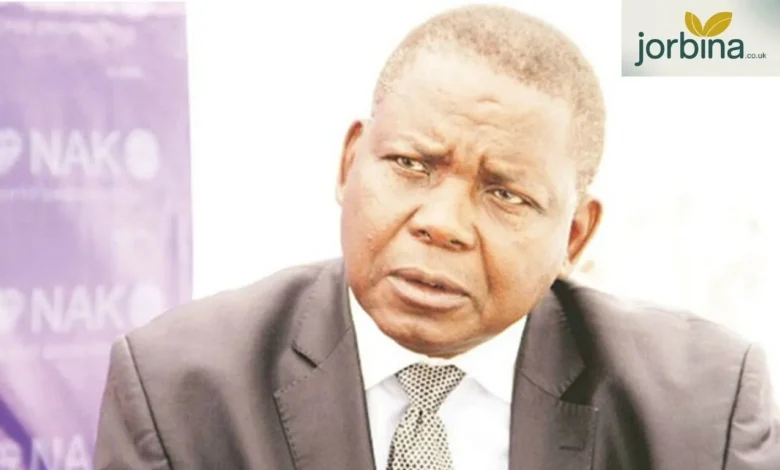What the Fred Moyo Trial Reveals About Justice Today

The story that made everyone stop and ask questions
What happens when someone who once sat in government finds themselves on the other side of the courtroom? Can power and privilege survive the pressure of the law? The Fred Moyo trial forces everyone to think about what justice really means today. It’s a story about accountability, reputation, and how far the law can reach when status is stripped away.
Who is Fred Moyo, and how did it start?
Fred Moyo once served as Zimbabwe’s Deputy Minister of Mines and Mining Development. He was a man trusted to oversee one of the country’s most vital sectors, but years later, his name made headlines for a very different reason. The problem began when his mining company defaulted on a loan from a local bank. Because Moyo had personally guaranteed that debt, the financial pressure shifted directly to him. When repayments fell through, the bank went to court to recover its money. The High Court ruled in favour of the bank, granting permission for the seizure of Moyo’s estate to settle the outstanding amount.
At that point, the former minister appealed the decision to the Supreme Court, hoping for a different outcome. The attempt failed. The appeal was thrown out, leaving his assets exposed and his reputation dented. For many Zimbabweans, watching a former government official face this level of accountability was surprising, but it also stirred a bigger conversation about whether justice in the country treats everyone the same way.
The legal trail that followed
The courtroom exchanges painted a clear picture of how debt enforcement works in Zimbabwe. The bank proved that Moyo’s company had not honoured the loan terms and that his personal guarantee meant his assets could be attached. The court also found that he had transferred some of his properties to a family trust, an act that the judges viewed as an attempt to shield those assets from debt recovery. In one of the rulings, the judge described the move as an act “borne of survival”, implying that the transfer was meant to delay or avoid payment rather than to protect his family’s welfare.
This was a significant moment. For years, critics have claimed that the wealthy or politically connected often escape the kind of legal scrutiny that ordinary citizens face. Yet, the Fred Moyo trial pushed back on that assumption. It showed that even someone with influence could be held accountable through due process.
A closer look at justice and accountability
So what does this case actually say about justice in modern Zimbabwe? First, it reinforces that no one is completely beyond the reach of the law. When the courts rule against a former government official, it sends a signal that the system, at least in that moment, worked. Accountability means more than words; it’s the act of enforcing agreements and holding people responsible for their commitments.
Second, it highlights transparency. The judgments in this case were publicly available, and the reasoning was laid bare for anyone to read. That openness allows citizens to see how the legal process works. It’s an important contrast to the secrecy that often surrounds cases involving public figures. For a deeper look at how formal rulings shape understanding of fairness, you can read this related JUDGEMENT, which shows how courts in other jurisdictions also balance evidence, rights, and responsibility.
The bigger message about fairness
Justice only works when people believe it applies equally. The Moyo case tested that belief. On one hand, it showed that public office doesn’t guarantee immunity. On the other hand, it revealed that justice can be painfully slow and expensive, something that ordinary citizens often cannot afford. The process stretched over several years, with appeals, property disputes, and administrative delays. The longer it took, the harder it became for the public to stay confident in the system.
But beyond the legal paperwork lies a broader social issue: trust. People judge justice not just by verdicts, but by how fairly and efficiently those verdicts are delivered. Each high-profile case either strengthens or weakens that trust. In Moyo’s situation, some saw it as proof that the law could bite back. Others viewed it as an isolated example rather than a real shift in culture.
Lessons from the trial
There are several lessons that emerge from this story. First, leadership comes with lasting accountability. Public officials, even after leaving office, remain responsible for their actions and financial commitments. Second, transparency protects credibility. By making court rulings public and easy to understand, the justice system earns legitimacy. Third, timing matters. A long, drawn-out trial undermines confidence, even when the outcome is fair.
Lastly, the Moyo case shows that the strength of a country’s justice system is not measured by how it treats the weak but by how it handles the powerful. When the courts can act without fear or favouritism, everyone benefits.
Justice as a reflection of society
Justice doesn’t exist in isolation; it reflects the culture and conscience of society. The Fred Moyo trial is not only about one man’s debt; it’s about how society reacts when power meets the rule of law. When people see that someone once in authority can face the same legal pressures as anyone else, it restores faith. It tells citizens that accountability is more than a slogan.
Still, there’s another side to the story. Legal wins don’t always translate into moral or systemic change. Zimbabwe, like many countries, continues to wrestle with corruption, inequality, and slow legal processes. One trial can’t fix all that, but it can start a conversation about what fairness really means.
Looking beyond Zimbabwe’s borders
This case also connects to a wider global pattern, where former political figures face scrutiny after leaving office. It’s happening across continents, from Africa to Europe. People want transparency. They want assurance that power doesn’t shield anyone from responsibility.
For example, another story, The Shocking Truth About Frederick George Lampard’s Nobody Told You, explores how truth and accountability can surface in unexpected ways, showing that the pursuit of justice isn’t bound by geography. Both cases, though unrelated, share a theme: when the curtain is pulled back, character and truth matter more than title or wealth.
Moving forward
The next step for Zimbabwe’s legal system is consistency. It needs to show that cases like Moyo’s aren’t exceptions but the norm. Justice must be predictable, transparent, and timely. Citizens should be able to trust that contracts, loans, and laws apply to everyone equally.
Public institutions can also learn from this case. The separation of powers between government, business, and the courts needs to remain strong. When that balance is clear, people gain confidence not just in individual cases but in the nation’s direction.
Final thoughts
The Fred Moyo trial was more than a legal proceeding; it was a test of public faith. It revealed both progress and flaws in the pursuit of justice. It proved that even former leaders can be held accountable, while also exposing how slow and fragile that process can be.
At the end of the day, justice is about trust. When the public sees that the law applies equally, when no name, title, or connection can change the outcome, then the system earns respect. The story of Fred Moyo stands as a reminder that fairness is not a gift from power but a right earned through transparency and courage.
FAQs
Is it true that Simon Khaya Moyo died?
Yes. Simon Khaya Moyo, another Zimbabwean politician, passed away on November 14, 2021, at the age of 76.
What is a pre-trial conference in Zimbabwe?
It’s a meeting between the parties and the judge before the trial begins. The goal is to narrow down issues, explore settlements, and prepare the case efficiently.
What is the saddest elephant that died?
That question isn’t connected to this topic, but it likely refers to a viral story about an elephant that died of heartbreak after losing its partner.
Who was the gymnast paralysed after falling?
This refers to Julissa Gomez, a gymnast who tragically became paralysed after a vaulting accident in the 1980s.
Can a man marry two wives legally in Zimbabwe?
Under civil law, marriages are monogamous. However, under customary law, a man can enter into a polygamous union recognised by tradition.



